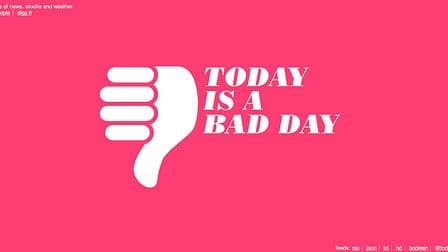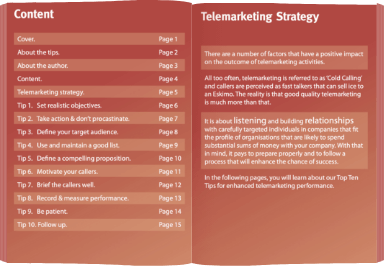Cold calling is tough. You get a lot of negative feedback and a more than a few knocks. Few people actually enjoy rejection. But it’s part of life for a cold caller. It’s likely that the overwhelming majority of calls will end with a NO as opposed to a YES and the law of numbers will, to some extent, dictate the success of telemarketing activity. It’s not quite as simple as that of course since sound pre-campaign research, good target market profiling and effective proposition development stack the odds more in the favour of a successful cold caller. But there are certain factors that are guaranteed to make sure that the cold caller has a bad day on the phone. Take a look below at our 10 Surefire Ways to Fail at Cold Calling. As a wise man once announced, they are in ‘no particular order’.
1. Failure to do the legwork
One thing is for sure. If you don’t make the calls, you won’t get the results. You need to set yourself some goals. That’s likely to be a given number of calls in the time available. If you combine that with callbacks, you’re more likely to achieve some success. But you won’t achieve any viable results unless you get on the phone and stop procrastinating.1. Failure to plan call-backs properly
2. Failure to maximize call-backs
The best opportunities for lead generation are likely to come from scheduled call-backs. That’s where the prospect has previously asked for a call when the timing may be more appropriate to discuss what you offer. If the call back dates aren’t in your system, how will you make sure that you capitalize on the timing when the buyer is in buying mode?
3. Failure to capture good notes
You may have spoken to the prospect 6 months before. Unless you have an amazing memory, it’s unlikely you’ll remember the finer details of that particular conversation. What was the prospect like? What were the buying triggers? Who are they using now? What’s the contract renewal date? Did the prospect use specific language and industry acronyms that you can now use to help you build rapport? Without good notes, you seriously damage your ability to take advantage of past conversations.
4. Failure to get past the gatekeeper
Ever been blocked by a tough PA or held up by no-name policies at a reception in big companies? We all have. So, it pays to plan for this and ensure that you have the right names before you blunder in. Gatekeeper techniques are crucial since the overwhelming majority of calls will effectively start with this blocker. So, if you aren’t sure of your ground, you’re doomed to failure.
5. Nowt to say
I’m often asked how to gain buyer interest. My reply is simple. Say something interesting. Think buyer, not seller or product. Think about what’s interesting to them not what you want to sell. The more engaging you can be, the more you will build rapport, and the more likely you are to cultivate an opportunity.
6. Dull dull dull
Bored? Well if you aren’t motivated, why would anyone want to listen? If you go through your day just waiting for 5 pm, all the energy will drain out of your voice and a bad day will become even worse. People like people that are engaging, upbeat, and motivated. You can guarantee a poor day of cold calling results when you don’t inject some enthusiasm into your activity. Behavior breeds behavior and if you’re uninspiring, you can predict the outcome on the call.
7. Do you stack the odds in your favor?
As we said, cold calling is, in part, a number game. It isn’t just numbered, but knowing your ratios will help you reach your goals. What percentage of decision-maker conversations are needed to convert a sale or an appointment? How many calls are needed to reach a decision-maker? If you know the objectives and you know your ratios, it becomes much easier to work out a recipe for success.
8. Are you consistently inconsistent
Successful telemarketing is as much about process and endeavor as it is about skills on the phone. Callers that are hit and miss tend to have no process and make no progress. They are sporadic with their calls and have long gaps in terms of hours and even days without calling. Effective b2b telemarketing is definitely based on momentum. You get into the groove. You become used to blocks and put-offs. You learn how to deal with these. But it’s hard to do that if you never build up a head of steam.
9. I give up
Giving up too soon is a symptom of a failed cold caller. Successful salespeople are goal and outcome-oriented. They know their numbers and they work them to their benefit. They predict objections and use techniques for overcoming objections. They don’t let blocks stop them. They build pipelines and callbacks (see point. 2 above) and don’t become discouraged by the rejection that is inherent in the job role. The winner is the tortoise not the hare in this game too. Remember that it’s about belief. If you think you can, you can. If you think you can’t, you most certainly won’t!
10. Failure to self develop
No one knows it all. They say knowledge is power. So, how much do you know about the market you operate within? What do you know about trends? How much do you understand buyer challenges and pains? What do you know of competition? Have you recently watched some videos or done some training on telemarketing skills? Nothing stands still and nor should you. Einstein was often quoted as saying that the definition of madness is doing the same thing over and over and expecting different results. If you’re having a bad time cold calling, what have you changed to make it better?
If you’d like to know how GSA Business Development can help generate growth for your business or book one of our new business development and marketing strategy workshops, contact us now on 0845 658 8192 or use the form on this site.






